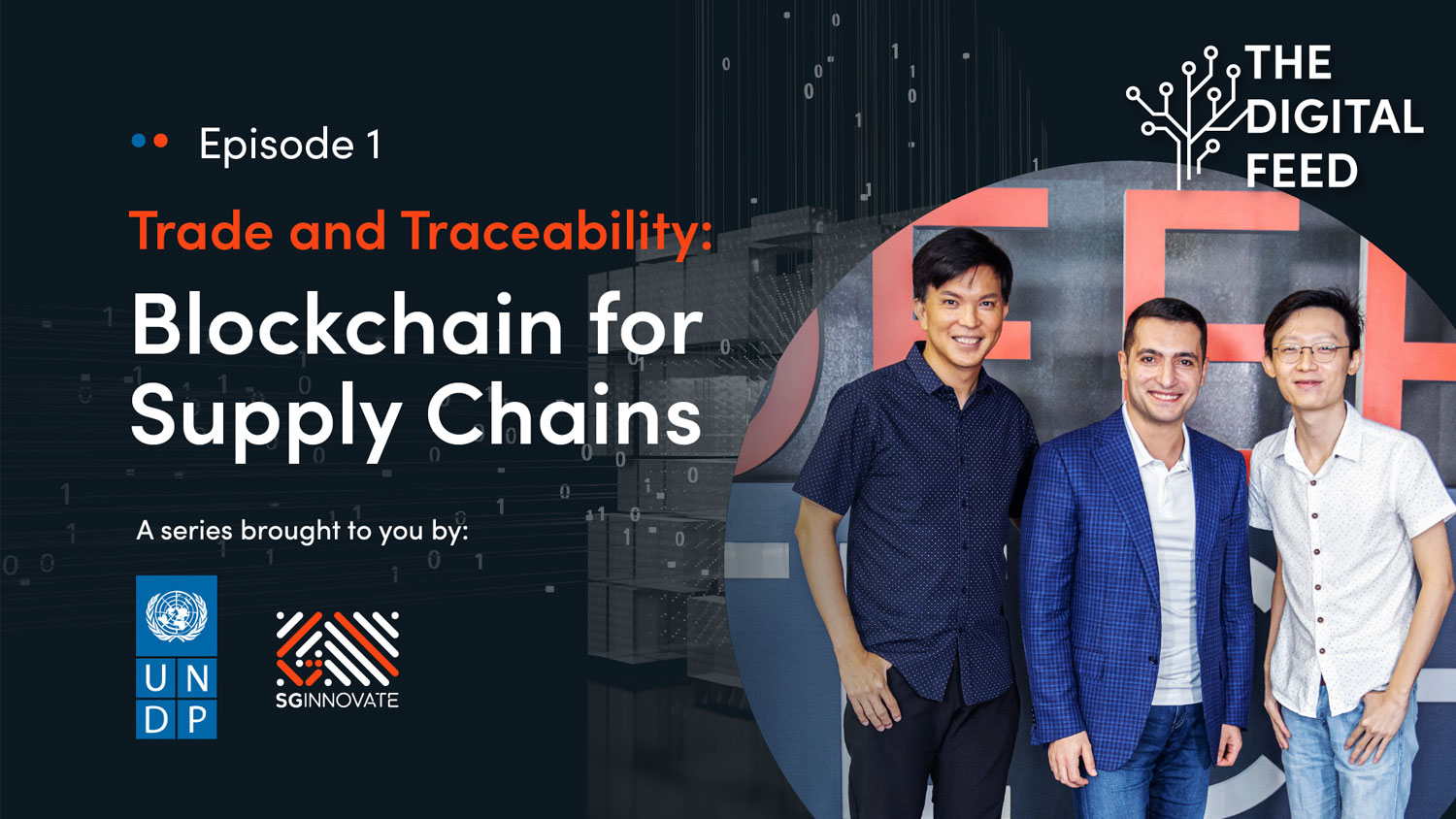The Digital Feed Episode 1: How Blockchain Can Help Track Food Supply Chains and Prevent Food Fraud
Mon, 10/12/2020 - 12:00
Blockchain technology can enable food traceability and transparency, as well as cut transaction costs across various value chains. To learn how and why, we interviewed Gary Loh, Founder and CEO of DiMuto.
There is a growing interest among consumers about food provenance—knowing where and when the food was grown, who processed it, and how. In addition to growing consciousness regarding the sustainability of food systems, consumers are also becoming increasingly aware of food fraud, including mislabelling and adulteration. The global cost of food fraud is estimated to be as high as $40 billion annually.
Blockchain technology—most commonly known as the backbone of cryptocurrencies—can enable food traceability and transparency, as well as one way to cut transaction costs across various value chains, including food chains. To learn how and why, we interviewed Gary Loh, Founder and CEO of DiMuto, a Singapore-based startup that uses blockchain for food traceability, and Raymond Yeh, Blockchain Developer at GovTech Singapore, the lead agency driving Singapore's Smart Nation initiative.
“Whose data systems should we trust?” asked Loh, noting that different businesses in a supply chain maintain separate data storage systems. Blockchain provides an answer through its ability to create what he calls “the custody of truth”. This takes away the burden of proof for transactions from any individual organisation.
According to Loh, this “truth” is the greatest commercial value of the technology. He also explained how the technology helps reduce food fraud—going beyond merely catching fraud to identifying who committed it and when, and where it’s happening.
Meanwhile, international trade underpins a large part of global food systems and adds to the challenge of ensuring traceability. “The way shipping works right now is quite silly,” remarked Yeh, as he explained the cumbersome process of handling paper-based trade documents. Documentation, including document processing and errors, constitutes 20% of the cost of trade currently.
As one solution, GovTech has developed TradeTrust, a blockchain-based open source utility that businesses around the world can use to create digital trade documents. “TradeTrust forms the underlying framework of what makes a document true”, said Yeh about the utility, which is also used by DiMuto.
Despite its many benefits, there are multiple challenges in scaling the adoption of blockchain for food traceability and trade in general. Limitations arise from the need to corroborate data on the blockchain with physical goods in the real world, Loh and Yeh pointed out.
If you prefer to listen to an audio-only version of these episodes, check out our podcast channel on Spotify here.
This article was first published here. The Digital Feed is an interview series in collaboration with UNDP Global Centre for Technology, Innovation and Sustainable Development in Singapore. This series will delve into the latest developments, trends and insights in ArgiTech and the food space.
DiMuto is one of our portfolio companies.
Trending Posts
- A Guide to Singapore’s Cell & Gene Therapy Ecosystem
- A Guide to Singapore’s Hydrogen Ecosystem
- Walking the tightrope of disclosure to create a robust IP strategy
- Why intellectual property (IP) strategy can mean the difference between life and death for a startup
- Going behind-the-scenes in a MedTech startup for a 6-month internship to create lasting impact






